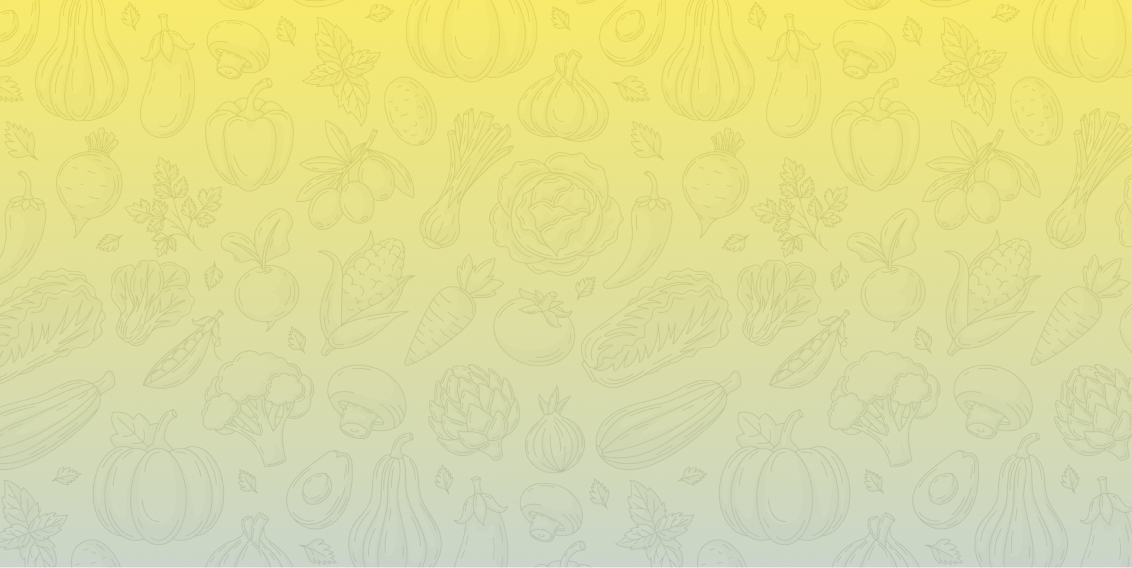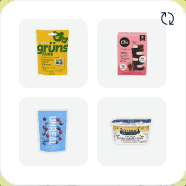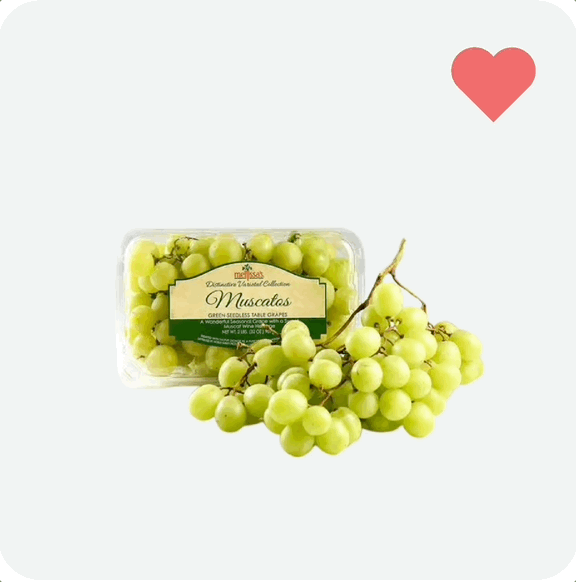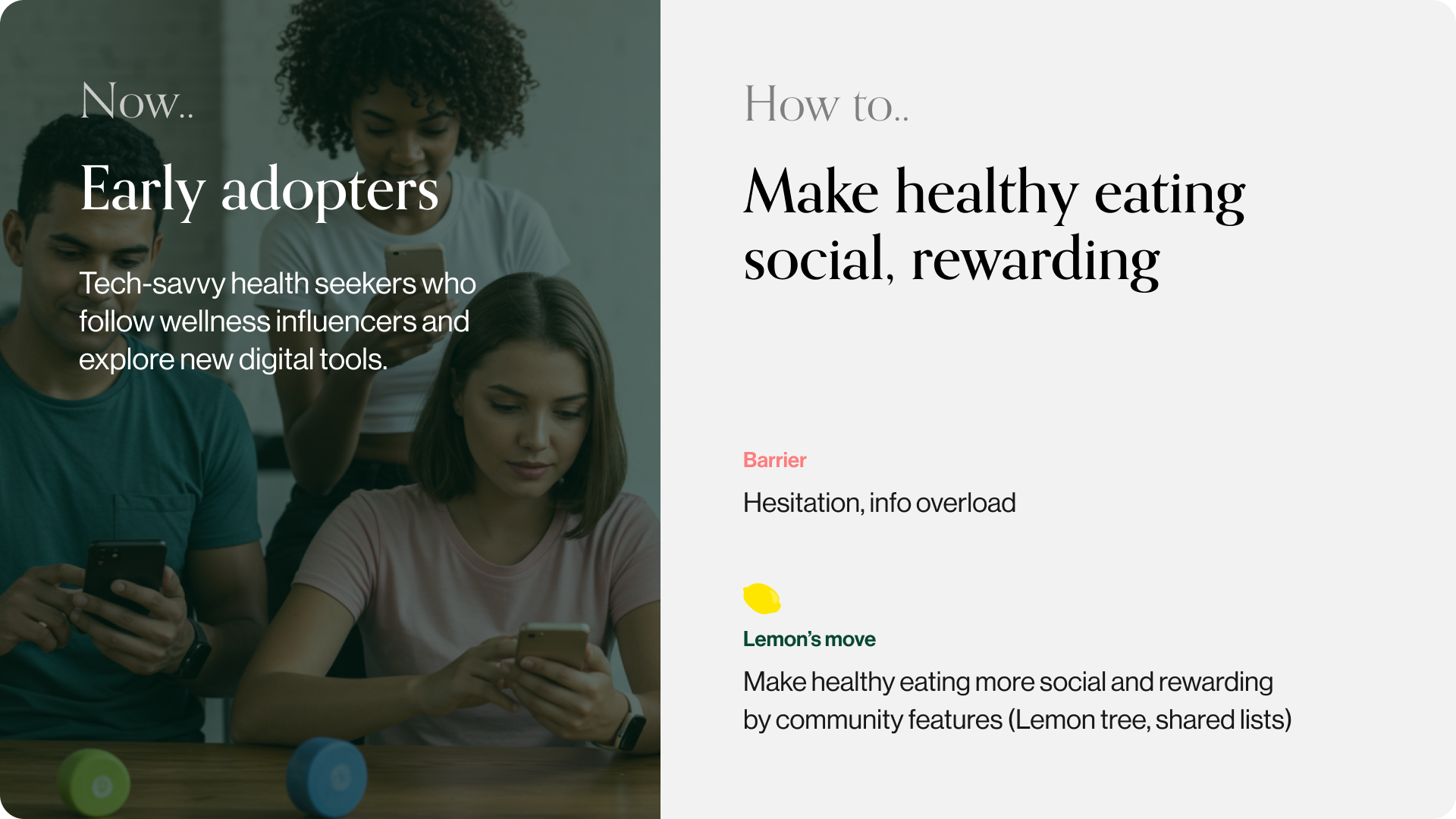
Lemon is a speculative platform that blends personalization, community, and AI to make healthy grocery choices more accessible and empowering.
OVERVIEW
Future Foresight Design Research
User Interface
Prototyping
My Role
Duration
15 weeks
Team
1 Ux Researcher
1 Visual Designer
2 UX Designers
Healthy eating has become a daily struggle — tangled in high costs, mixed messages, and barriers
WHY THIS MATTERS
Studies from Pew Research Center and Harvard Health, along with our own user survey, reveal that nearly half of Americans perceive healthy foods as
💵 Expensive
😵💫 Confusing
🚫 Restrictive
Lemon learns, connects, recommends, and grows with each family. A grocery-aware ecosystem that meets people where they already are.
OUR RESPONSE - LEMON
Integration with Instacart
Recommendations based on health data and purchase behavior
We saw an opportunity to turn grocery shopping from a mundane task into a micro-intervention for healthier habits — all without disrupting daily routines
REFRAMING THE OPPORTUNITIES
We applied future foresight methods such as Futures Wheel, STEEP Model, and S-Curve analysis to explore the changing landscape of food and anticipate how it may evolve.

GOAL
Lemon is the only platform that integrates health, technology, community and AI that leads behavioral changes, and helps people leading a more healthy eating habit.
By plugging into apps people already use, Lemon meets users where they are without asking them to change their routines.
KEY FEATURES
Simple Sticker on products that are right for each person.
We start with Instacart, the leading online grocery platform, and then expand to others.
Lemon combines their health data, purchase patterns, and wearable insights to deliver personalized grocery recommendations for every member of the family.
Lemon shows what’s good for you, what’s not, and gently nudges you toward choices that make a real difference.
It even suggests new ways to use what you’ve already purchased.
The community feature is a game changer because it lets users see what others with similar needs are buying, making healthy choices feel easier and more trusted.
Users can connect with friends, see how many Lemon Trees they’ve grown, and track how healthy they’re eating.
Lemon Celebrates Life 🍋
Lemon Celebrates Life 🍋
Using the Chasm Model, we planned Lemon’s path across user adoption stages.
VISION FOR IMPACT
Exploring how Lemon could extend beyond online stores, into the aisles themselves.
PROTOTYPING FOR IN-PERSON GROCERY EXPERIENCE
This early prototype tests the idea of a Lemon Smart Cart, a cart that scans products as users place them inside and gives a subtle, real-time cue about each product’s impact on their health.
Nourishing
Okay in moderation
Better to avoid
Lemon Cart Says: Chocolate, Think Twice!!!!!!!
Design with empathy by supporting healthy choices without guilt or pressure.
Focus on progress, not perfection, by celebrating small wins.
Make behavior change easier by guiding users through simple, steady steps.
Designing systems that drive behavior change is hard. It requires a different mindset and a more human approach.
KEY LEARNINGS





















